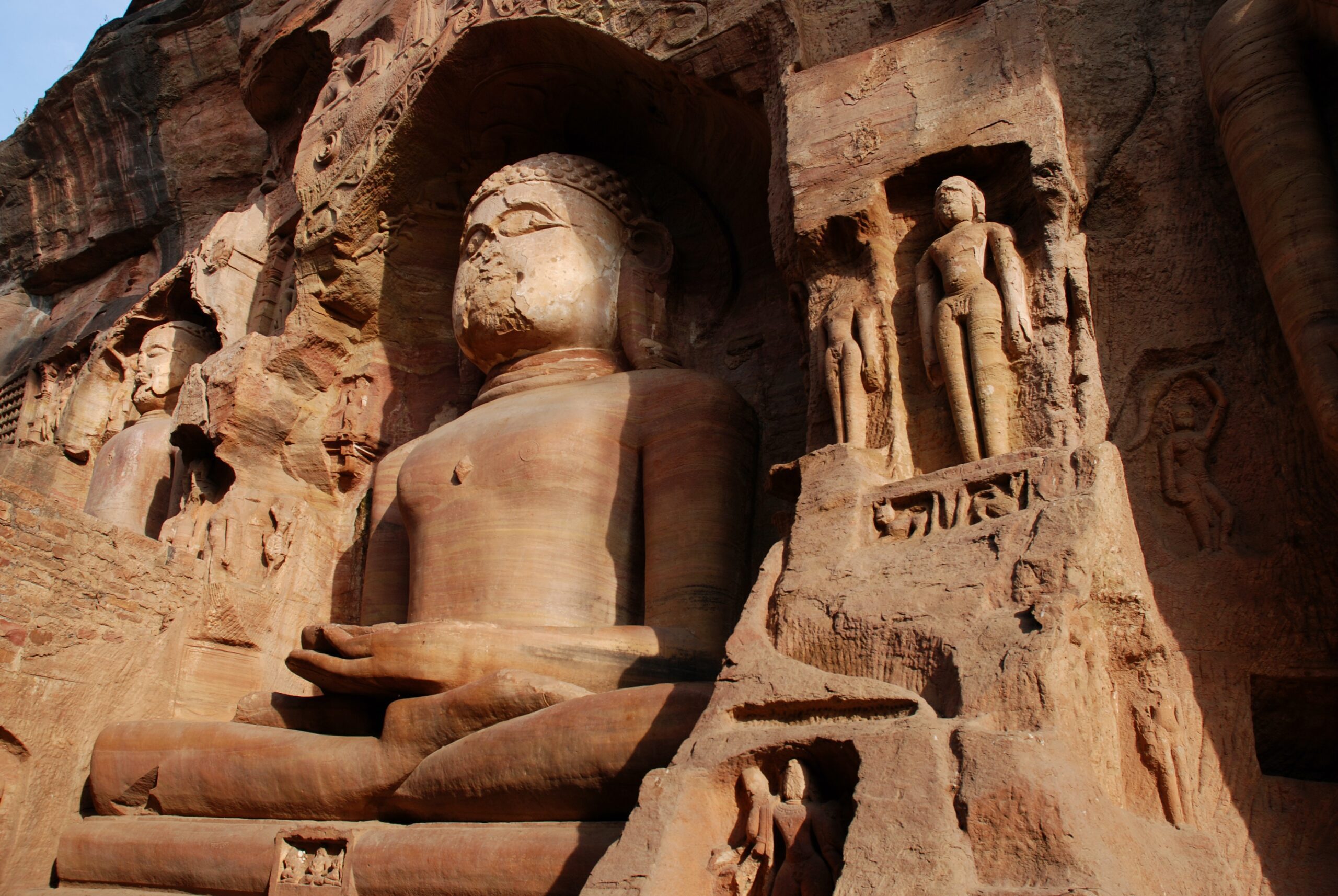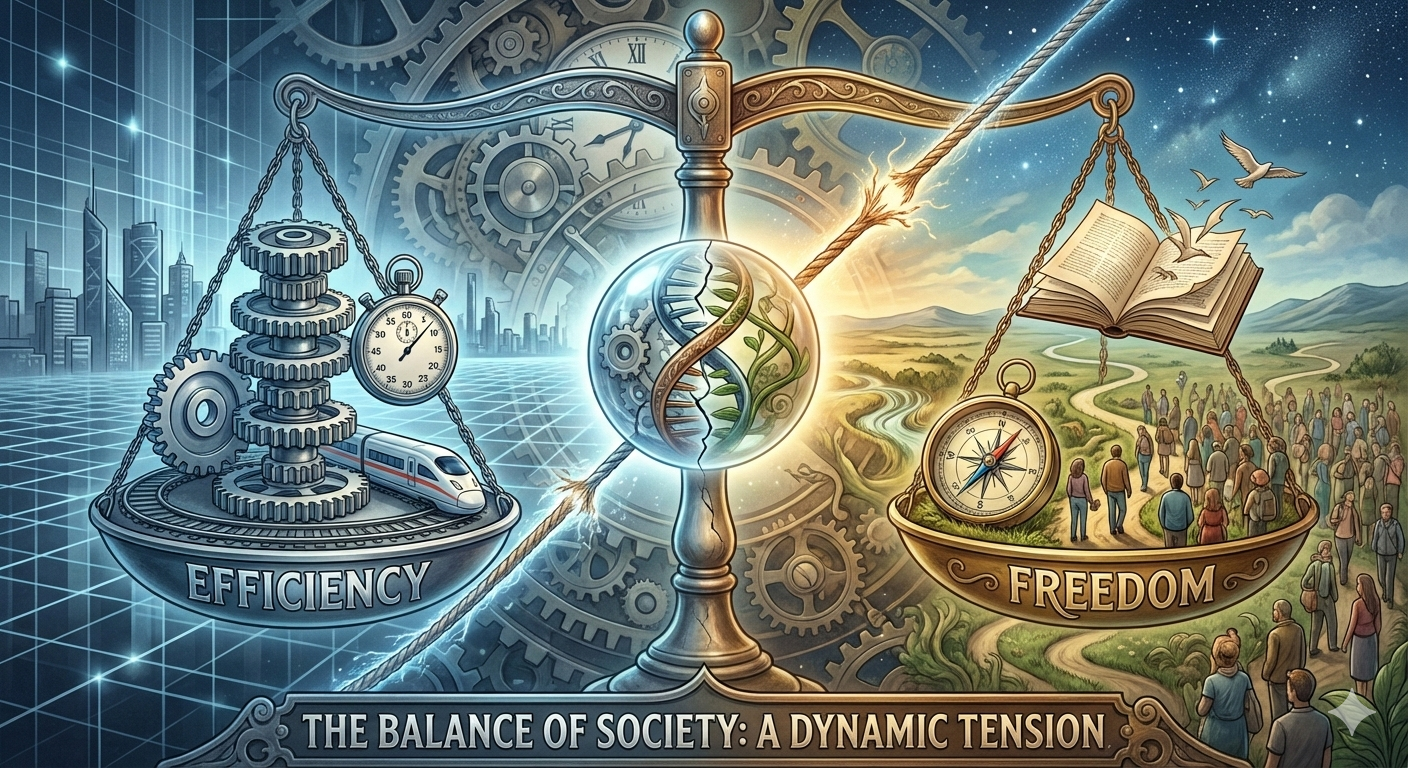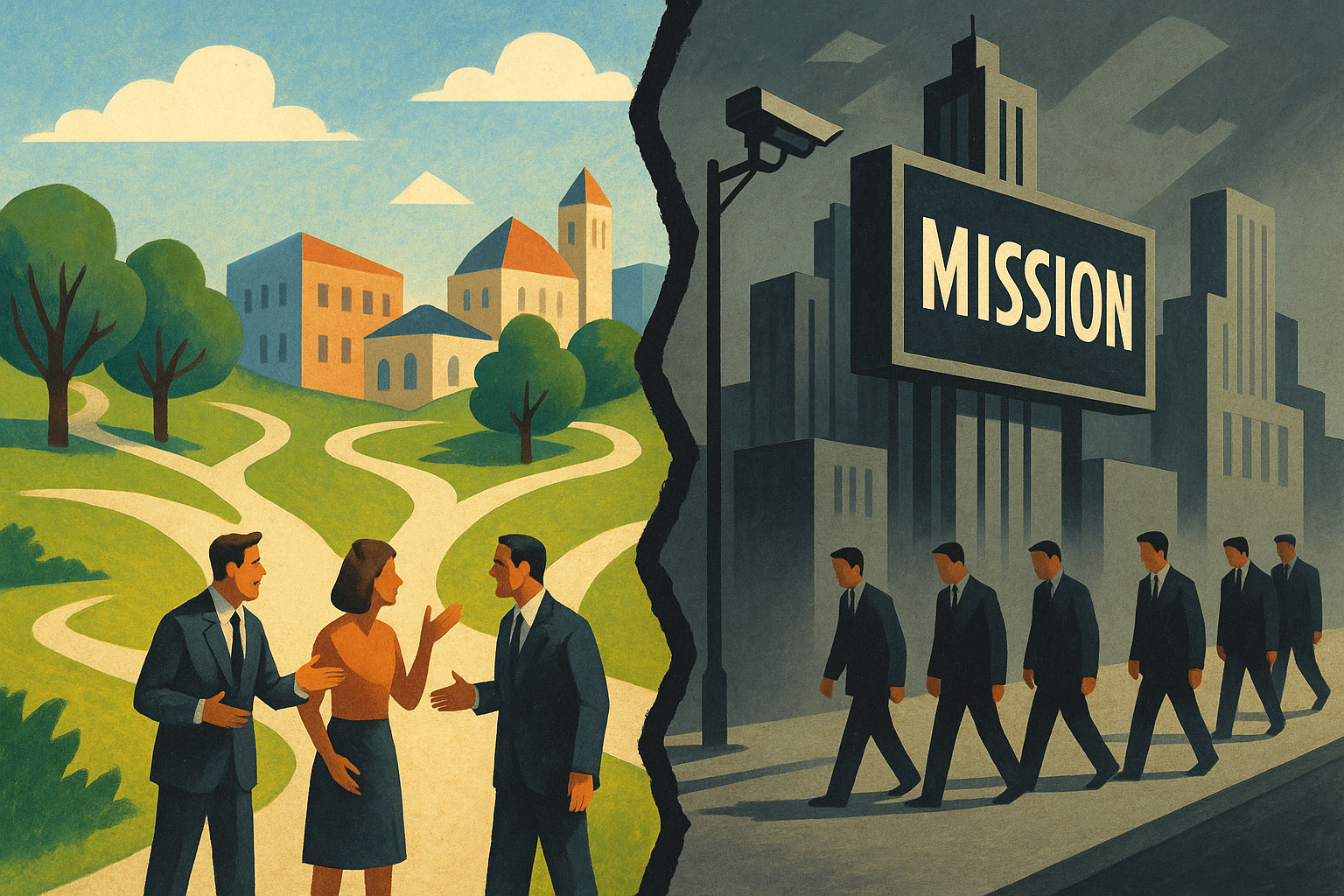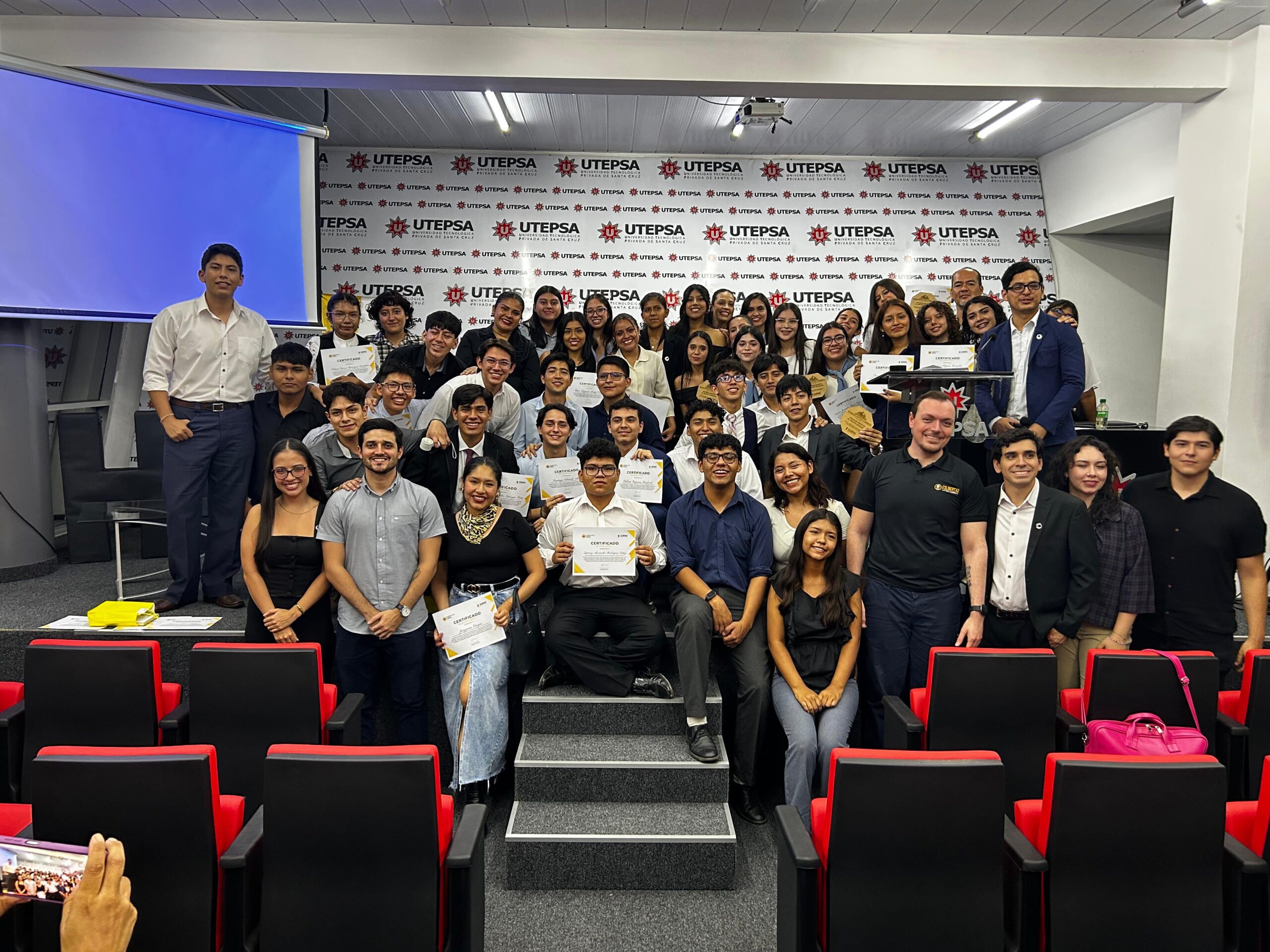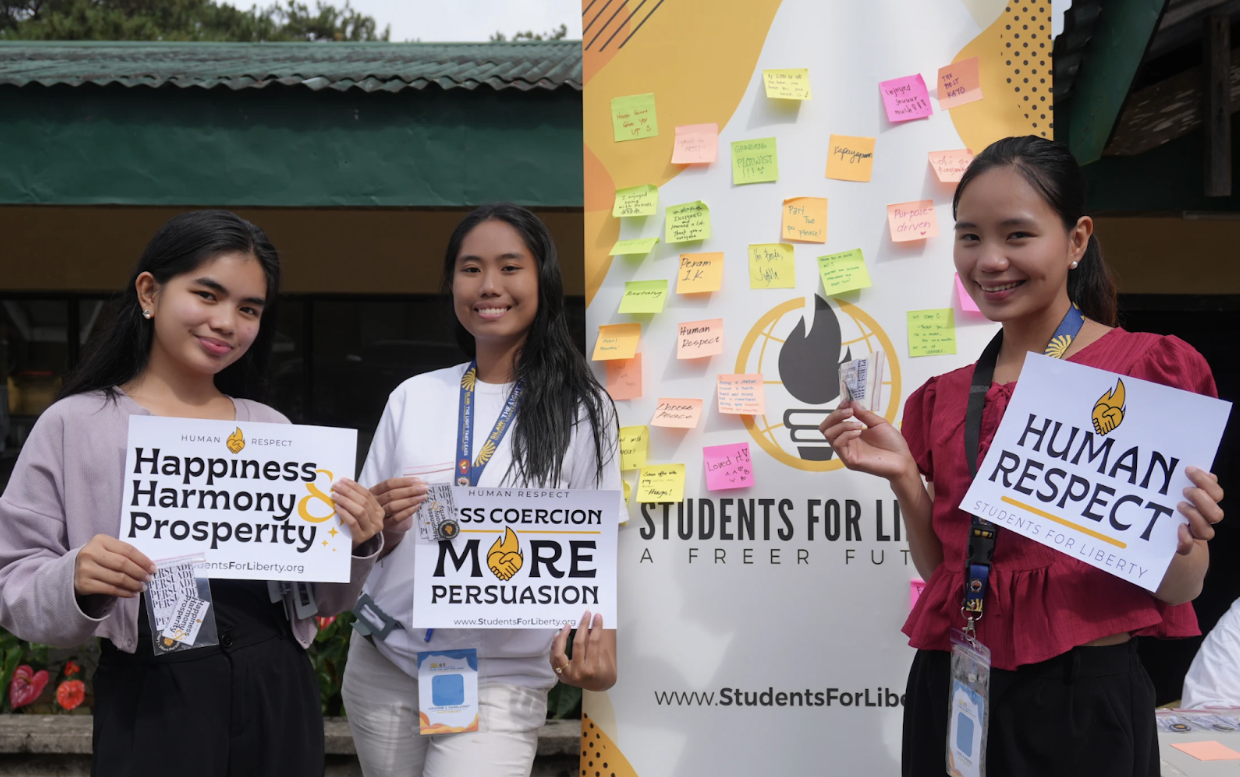Image citation: Ancient Jain Tirthankaras structure, by Tom D’Arby, licenced under Pexels
In the Calculus of Consent, James Buchanan and Gordon Tullock explain that individuals in a society can accomplish their goals through independent individual action, voluntary association with others (like a community association for managing a housing society), or collective (political) action.
In this understanding, let us take the example of Jainism (one of the three ancient religions in India] that can meet these objectives by consistently having Jains apply their principles in individual and voluntary actions; however, it is not so easy in the collective sense as defined by Buchanan and Tullock. This is because collective action involves the use of coercion through the means of the State to achieve goals. Sociologist Max Weber, in his 1918 lecture “Politics as a Vocation” defined the modern State as a ‘human community that (successfully) claims the monopoly of the legitimate use of physical force within a given territory’ (emphasis added). While violence will probably still exist in human society, the idea of legitimizing it should be looked at with suspicion.
What concerns me more is that some Jains are rather eager to use the means of the State, which necessarily prompts violence, for supposed religious reasons. I consider this not only hypocritical but also an abandonment of the values of the religion. A PIL (Public Interest Litigation) was recently filed before the Bombay High Court by three Jain Organizations to ban advertisements of meat. Many Jains have also successfully secured a ban on meat selling during paryushan, particularly in Gujarat and Maharashtra. The length of the meat ban has also been a large political issue, giving a greater chance for more harm being done to people through the political processes. It expands the scope of the State, and individual liberty is curtailed to a greater extent.
But if one holds that it is immoral to kill animals and eat meat, but also believes in ahimsa (non-violence), what can one do? Persuade people, or incentivize people through voluntary actions. There have been some instances where Jain trusts have compensated butchers for their losses during the ban. But if you can compensate and incentivize people to not sell or eat meat, there’s no need for a ban.
Anekantavada is the key here, concerned with the nature of truth or reality. It is important to appreciate that there are different approaches to arriving at this understanding, and entering into discourse with other humans is one way to meet this objective.
This perhaps also very well represents what Hayek described as the challenge of living successfully in modern society. “If we were to apply the unmodified, uncurbed, rules of the micro-cosmos (i.e., of the small band or troop, or of, say, our families) to the macro-cosmos (our wider civilization), as our instincts and sentimental yearnings often make us wish to do, we would destroy it.”[2] The challenge is to simultaneously live while maintaining a clear distinction between the two. It would be understandable if my parents disallowed me from consuming meat because they want to teach me it is immoral. But it would be a whole different thing if they tried to impose a ban on the entire society because this sense of morality is not shared by all.
M.K. Gandhi considered his interactions with Raychandrabhai Mehta, a Jain man, very important in choosing non-violent methods as a political tactic, and recognized that “The State represents violence in a concentrated and organized form.” Gandhi also unambiguously resisted a ban on cow slaughter back in 1947, saying “I have long pledged to serve the cow but how can my religion also be the religion of the rest of the Indians? It will mean coercion against those Indians who are not Hindus.”, when the to-be president Rajendra Prasad was receiving thousands of requests to impose the ban.
A significant portion of our freedom from the oppression of the British State is owed to non-violent means, and it would be foolish to now turn to the State to impose violence on others.
This piece solely expresses the opinion of the author and not necessarily the organization as a whole. Students For Liberty is committed to facilitating a broad dialogue for liberty, representing a variety of opinions.
[1] In this author’s opinion, who is a practicing Jain, this is an extremely humbling, peaceful, and spiritual practice.
[2] The Fatal Conceit, 1988
